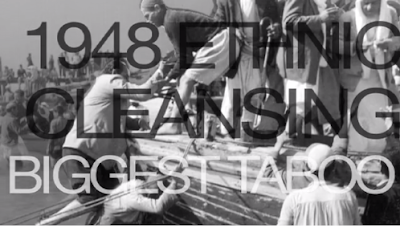GUEST: Lia Tarachansky, who grew up in a settlement in the West Bank, talks about her new film, "On the Side of the Road," the story of how Israel fought to erase Palestine and then created a culture of denial.
We had recorded this interview earlier, so I was listening to it again as we did the program today.
I was stuck this time as she described becoming aware of apartheid when she moved to Canada. People questioned Lia for the first time about Israel's human rights record, and she decided to do her own research. It was all there, from the Nakba of 1948 to the present day massacres in Gaza. She had spent her childhood and teenage years believing something so firmly that it took a new country to get her to analyze what had really transpired.
I think that is certainly a major theme of Lia's film. And I wondered during our talk, whether there were listeners out there whose minds might be similarly liberated by our discussion. Zionism is religion in that it requires a blind faith in what was done in the name of the Jewish people. Forced to pay closer attention to the suffering and oppression of the Palestinians, most will come to recognize the evil of apartheid, and the truth will help restore their sense of humanity.



